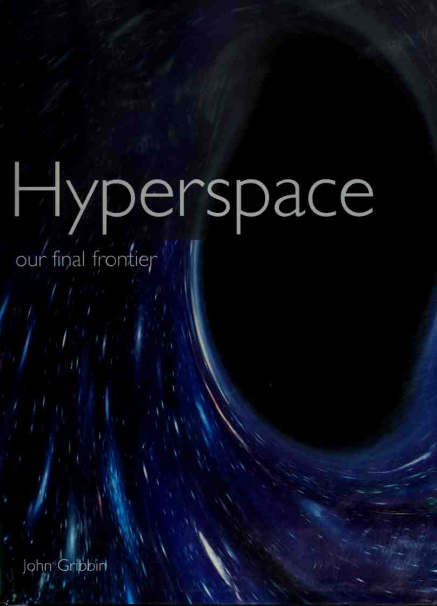Newly released
This book is new and will be uploaded as soon as it becomes available to us and if we secure the necessary publishing rights.

Hyperspace: The Universe and Its Mysteries Book PDF
(0)
Author:
John GribbinNumber Of Reads:
167
Language:
English
Category:
Natural ScienceSection:
Pages:
246
Quality:
good
Views:
915
Quate
Review
Save
Share
Book Description
The exploration of the Universe which largely began to take place in the final decades of the 20th century is the story told in Hyperspace: Our Final Frontier. There have now been space probes to all the major planets of the Earth's Solar System -- the only worlds that are likely to be physically explored in our lifetime. Beyond the Solar System, across the final frontier of space, however, astronomers are now able to explore the Universe by proxy, using evidence from light, radio waves, x-ray, and other information gathered by telescopes on the Earth's surface and by orbiting satellites. Astronomers can now work out the life cycles of stars, the evolution of galaxies, the location of other solar systems, and the fate of the Universe itself. Hyperspace: Our Final Frontier provides a compelling insight into the way that astronomers work, explaining how they make the discoveries that make headlines, as well as the stories behind those headlines. From the first steps which measured the distances to the nearest stars, to the latest discovery that the Universe is expanding at an ever-faster rate, John Gribbin puts deep space into perspective with the aid of specially commissioned illustrations and revealing photographs from the latest generation of astronomical telescopes.
John Gribbin
John Gribbin is a British science writer, an astrophysicist, and a visiting fellow in astronomy at the University of Sussex. His writings include quantum physics, human evolution, climate change, global warming, the origins of the universe, and biographies of famous scientists. He also writes science fiction. John Gribbin graduated with his bachelor's degree in physics from the University of Sussex in 1966. Gribbin then earned his Master of Science (MSc) degree in astronomy in 1967, also from the Univ. of Sussex, and he earned his PhD in astrophysics from the University of Cambridge (1971).
In 1968, Gribbin worked as one of Fred Hoyle's research students at the Institute of Theoretical Astronomy, and wrote a number of stories for New Scientist about the Institute's research and what were eventually discovered to be pulsars.
In 1974, Gribbin, along with Stephen Plagemann, published a book titled The Jupiter Effect, which predicted that the alignment of the planets in a quadrant on one side of the Sun on 10 March 1982 would cause gravitational effects that would trigger earthquakes in the San Andreas Fault, possibly wiping out Los Angeles and its suburbs Gribbin distanced himself from The Jupiter Effect in the 17 July 1980, issue of New Scientist magazine, stating that he had been "too clever by half".
In February 1982, he and Plagemann published The Jupiter Effect Reconsidered, claiming that the 1980 Mount St. Helens eruption proved their theory true despite a lack of planetary alignment. In 1999, Gribbin repudiated it, saying "I don't like it, and I'm sorry I ever had anything to do with it.
In 1984, Gribbin published In Search of Schrödinger's Cat: Quantum Physics and Reality. The Spectator Book Club described it as among the best of the first wave of physics popularisations preceding Stephen Hawking's multi-million-selling A Brief History of Time.Gribbin's book was cited by BBC World News as an example of how to revive an interest in the study of mathematics.
In 2006, Gribbin took part in a BBC radio 4 broadcast as an "expert witness". Presenter Matthew Parris discussed with Professor Kathy Sykes and Gribbin whether Albert Einstein "really was a 'crazy genius'".
At the 2009 World Conference of Science Journalists, the Association of British Science Writers presented Gribbin with their Lifetime Achievement award.
Book Currently Unavailable
This book is currently unavailable for publication. We obtained it under a Creative Commons license, but the author or publisher has not granted permission to publish it.
Rate Now
5 Stars
4 Stars
3 Stars
2 Stars
1 Stars
Hyperspace: The Universe and Its Mysteries Quotes
Top Rated
Latest
Quate
Be the first to leave a quote and earn 10 points
instead of 3
Comments
Be the first to leave a comment and earn 5 points
instead of 3